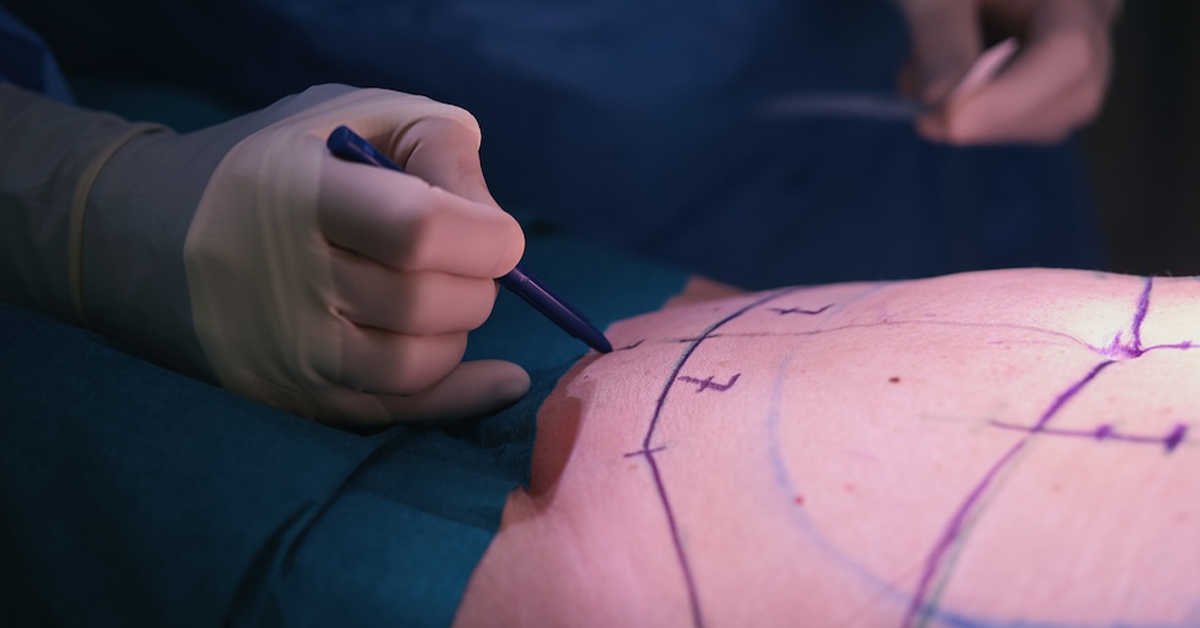Can You Get a Tummy Tuck If You Have Diabetes?
A Tummy tuck, also known as Abdominoplasty, is a surgical procedure often sought after to achieve a flatter and more toned abdomen. However, for individuals living with diabetes, the decision to undergo such a procedure requires careful consideration and consultation with medical professionals.
Diabetes is a chronic condition that affects the body’s ability to regulate blood sugar levels, and it can potentially complicate the healing process after surgery.
Can individuals with diabetes undergo a tummy tuck surgery?
For individuals living with diabetes, the decision to undergo a Tummy tuck surgery should be made in consultation with their healthcare team, including their primary care physician and endocrinologist. While having diabetes does not necessarily rule out the possibility of undergoing a Abdominoplasty, there are several factors that need to be considered to ensure a safe and successful outcome.
Firstly, it is essential to have good blood sugar control before any surgery. Uncontrolled diabetes can lead to complications during and after the procedure, such as delayed wound healing or infection. Therefore, your healthcare team will assess your diabetes management and work with you to optimize your blood sugar levels to minimize these risks.
Additionally, your overall health and fitness level will be evaluated. Diabetes is often associated with other medical conditions such as heart disease or high blood pressure, which may increase the risks associated with surgery. Your healthcare team will determine if you are a suitable candidate by conducting a thorough medical examination and reviewing your medical history.
Furthermore, it is crucial to have realistic expectations regarding the potential outcomes of the surgery. Individuals with diabetes may experience slower healing times and may need additional support and monitoring during the recovery period.
What precautions should individuals with diabetes take before and after a tummy tuck surgery?
Before undergoing a Tummy tuck surgery, individuals with diabetes should take certain precautions to minimize the risks associated with the procedure and ensure a smooth recovery.
First and foremost, it is essential to work closely with your healthcare team, including your primary care physician and endocrinologist, to optimize your blood sugar control before the surgery. This may involve adjusting your diabetes medications, implementing a healthy diet plan, and monitoring your blood sugar levels regularly. Achieving stable blood sugar levels will help reduce the risk of complications during and after the surgery.
In addition to blood sugar control, individuals with diabetes should undergo a thorough pre-operative evaluation to assess their overall health and fitness level. This evaluation may include tests such as an electrocardiogram and blood tests to ensure that you are in good cardiovascular health and that your kidneys and liver are functioning properly.
During the recovery period after a Tummy tuck surgery, individuals with diabetes should continue to prioritize their blood sugar control. Maintaining stable blood sugar levels will promote optimal wound healing and reduce the risk of infection.
It is also essential to follow any dietary and exercise recommendations provided by your healthcare team. Proper nutrition and physical activity can help manage blood sugar levels and promote overall healing and well-being. Taking prescribed medications as directed is equally important to ensure the effectiveness of treatment plans and to monitor any potential complications that may arise.
Are there any specific risks or complications for individuals with diabetes undergoing a tummy tuck surgery?
While individuals with diabetes can undergo a Abdominoplasty surgery, it is important to be aware of the potential risks and complications that may arise due to their condition.
One of the main concerns for individuals with diabetes is delayed wound healing. Diabetes can impair the body’s ability to heal wounds effectively due to compromised blood circulation and nerve function. As a result, the incision site may take longer to heal, increasing the risk of infection or other complications. It is crucial to work closely with your healthcare team to monitor your wound healing progress and address any concerns promptly.
Infections are another potential risk for individuals with diabetes undergoing a Tummy tuck surgery. The combination of compromised immune function and potential delays in wound healing increases the likelihood of infection.
Additionally, individuals with diabetes may experience less predictable outcomes in terms of cosmetic results. The presence of diabetes can affect the elasticity and quality of the skin, potentially affecting the final appearance of the abdomen after surgery.
Furthermore, individuals with diabetes may be at a higher risk of cardiovascular complications during and after surgery. Diabetes is commonly associated with other cardiovascular risk factors such as high blood pressure and obesity. Your healthcare team will conduct a thorough evaluation of your cardiovascular health before the surgery to assess the risks and make any necessary adjustments to minimize complications.
How does diabetes impact the recovery process after a tummy tuck surgery?
After undergoing a Abdominoplasty surgery, individuals with diabetes may experience a different recovery process compared to those without diabetes. Diabetes can impact the body’s ability to heal and recover, potentially affecting the overall duration and outcome of the recovery period.
One of the primary concerns in the recovery process for individuals with diabetes is wound healing. Diabetes can impair blood circulation and nerve function, leading to slower wound healing and a higher risk of complications such as infections or delayed healing. It is important to closely monitor the surgical incision site and follow the specific wound care instructions provided by your healthcare team. This may include cleaning the incision site, applying sterile dressings, and taking prescribed medications to prevent infections.
Additionally, individuals with diabetes may need to take extra precautions to manage their blood sugar levels during the recovery period. Fluctuating blood sugar levels can impact the healing process and increase the risk of complications. Your healthcare team will provide guidance on how to monitor and manage your blood sugar levels effectively. This may involve adjusting your diabetes medications, implementing a healthy diet plan, and monitoring your blood sugar levels regularly.
In some cases, individuals with diabetes may require additional post-operative monitoring and support. This may involve more frequent follow-up appointments with your healthcare team to assess the healing progress and address any potential concerns promptly. Your healthcare team will also provide guidance on when it is safe to resume normal activities and exercise, as well as any restrictions or modifications that may be necessary.
Finally, it is important to have realistic expectations regarding the recovery process. Individuals with diabetes may experience a longer recovery period compared to those without diabetes. This is due to the potential delays in wound healing and the need for additional monitoring and care.
How can individuals with diabetes prepare mentally and emotionally for a tummy tuck surgery?
Undergoing a Tummy tuck surgery can be a significant decision for individuals with diabetes, both physically and emotionally. Therefore, it is important to adequately prepare mentally and emotionally for the procedure to ensure a positive experience and outcome.
Firstly, it is essential to have a realistic understanding of the potential risks, benefits, and limitations of the surgery. Discussing your expectations and desired outcomes with your healthcare team will help align your expectations with what can be achieved realistically. Educating yourself about the procedure and the recovery process can also contribute to your mental and emotional preparedness, allowing you to make informed decisions.
It is also important to have a strong support system in place. Inform your loved ones about your decision to undergo the surgery and discuss your concerns and fears with them. Their presence and emotional support can provide reassurance and contribute to a smoother recovery process. Consider joining a support group or connecting with other individuals who have undergone similar procedures to share experiences and gain insights.
Conclusion
Individuals with diabetes can undergo a Tummy tuck surgery, but it requires careful consideration and consultation with healthcare professionals. By optimizing blood sugar control, taking necessary precautions before and after the surgery, being aware of potential risks and complications, and mentally and emotionally preparing for the procedure, individuals with diabetes can increase their chances of a successful outcome. It is important to prioritize both physical and emotional well-being throughout the process and to rely on the expertise of medical professionals to ensure a positive and safe experience.
Tummy Tuck in Miami, FL
Tummy Tuck is a surgical procedure that can help you attain the body shape you desire. If you are interested in learning more, call us now at (305) 406-9055 or schedule a consultation online Now.







